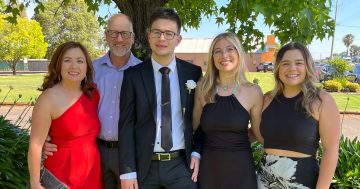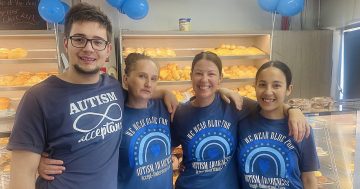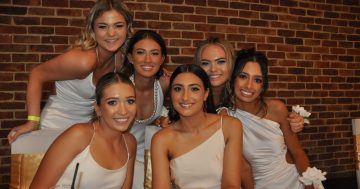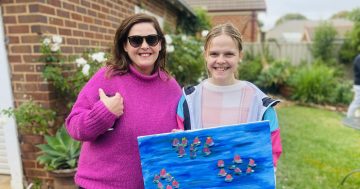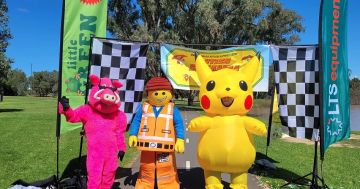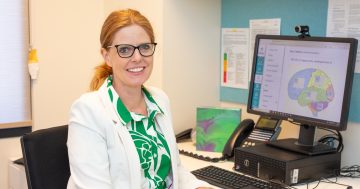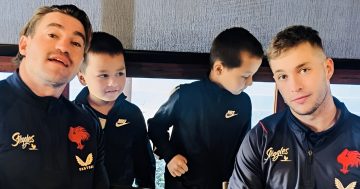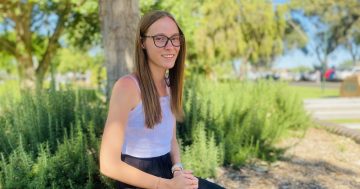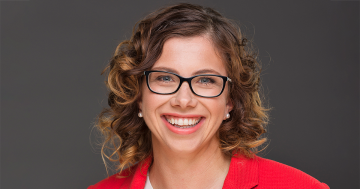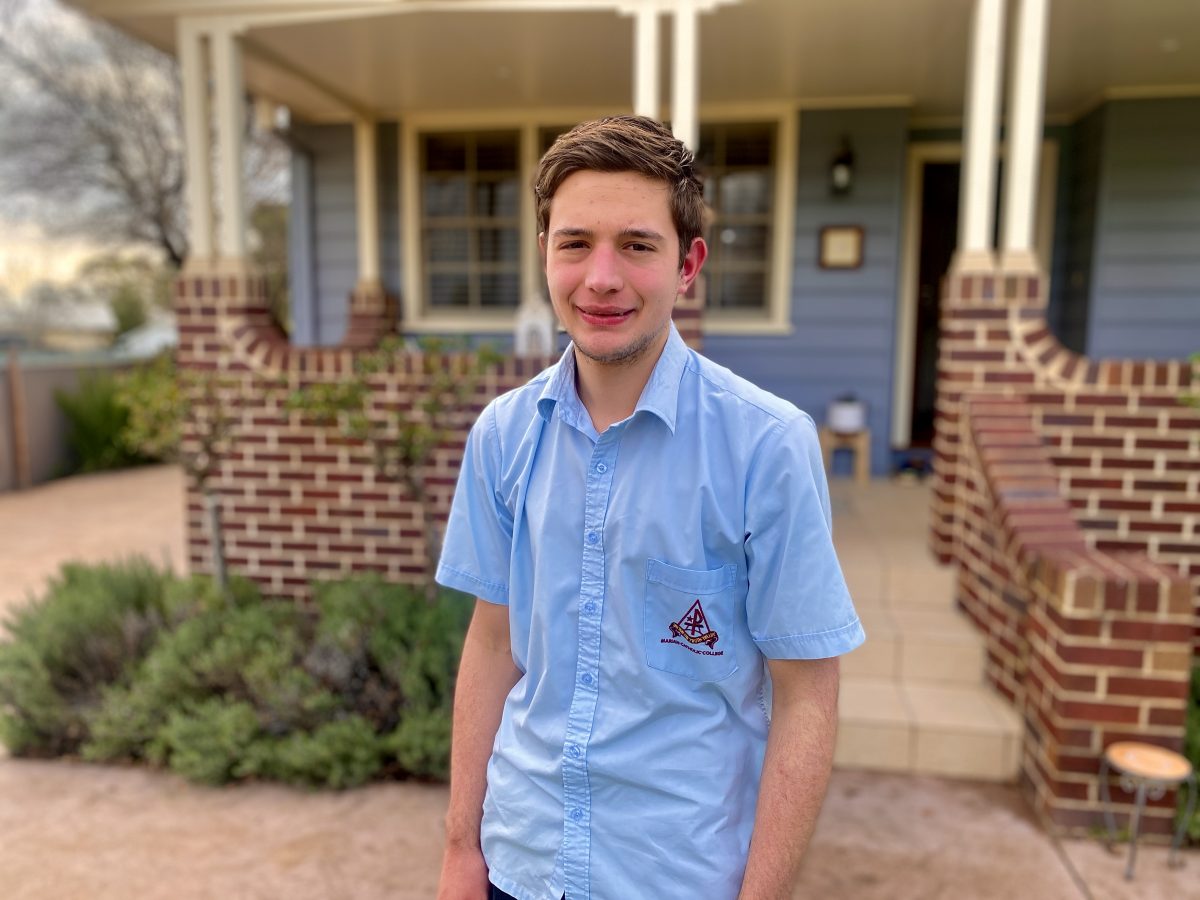
Noah Beltrame is changing stereotypes about autism. Photo: Oliver Jacques.
A 17-year-old Griffith high school student is on a mission to change the way the general public views autism spectrum disorder, to help them understand the positive side of the condition.
“A world without different people would most likely suck … autism is a different way of looking at the world, which makes the world a lot better,” Noah Beltrame says. “If we all thought one certain way, we wouldn’t really get anywhere, would we? It’s good to have two different points of view and as well as different people.
“My goal is to get rid of the belief that autism needs to be gotten rid of.”
More than 200,000 Australians live with autism spectrum disorder (ASD).
The US-based Centers for Disease Control and Prevention defines ASD as a “developmental disability caused by differences in the brain … people with ASD often have problems with social communication and interaction, and restricted or repetitive behaviours or interests.”
According to Noah, this framing of the condition with which he was born is far too negative.
“I don’t look at autism as a disability … I see [the difference between those on or not on the spectrum] more like the difference between left-handers and right-handers,” he says.
The year 11 Marian Catholic College student says that while he struggles with some aspects of school life, there are other things he can do far better than his peers.
“I, like most people with autism, have unusually heightened senses,” he says. “We have pretty advanced hearing, which can irritate my parents at times as they don’t want me to hear some of their stuff.”
Noah also has a photographic memory. He can memorise the script of entire episodes of his favourite TV shows, such as Young Sheldon. A lover of history and geography, he also knows all 195 country capitals in the world by heart.
“What’s the capital of Kazakhstan?” Region asked Noah, to test his claim.
“Nur-Sultan,” he says, without missing a beat.
“The capital used to be Almanty, but was changed in 2019. Nur-Sultan used to be called Astana, but was renamed after the former president.”
Noah sees himself as an autism advocate in the mould of American animal scientist Temple Grandin, who revolutionised the meat-processing industry by using her autistic trait of “thinking in pictures” to design livestock facilities in a way that minimised animal suffering. She also sought to change the way the world perceives autism.
The Griffith student says we still have a long way to go.
“The are still people who think autism is something that needs to be ‘cured’… I really don’t like this talk of a prenatal test to identify autism [in an unborn child],” Noah says. “The world would be a much worse place if we didn’t have people like me.”
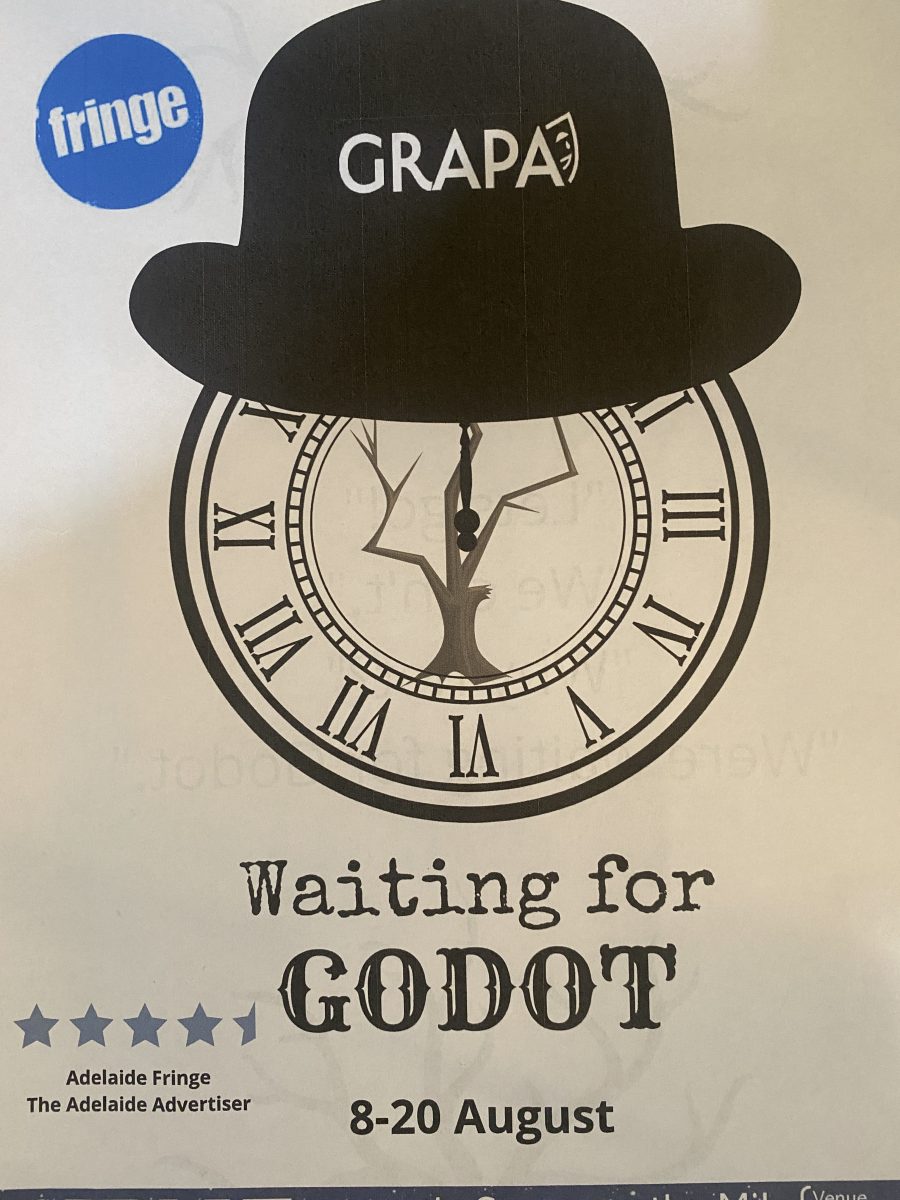
Noah’s artwork. Photo: Supplied.
Noah’s mum Dene Beltrame is also a longtime autism advocate and president of the Griffith Autism Spectrum Support Group.
“We are very proud of Noah, he’s doing a lot of work to change perceptions … I’m not going to stop him from doing whatever he wants to do,” Ms Beltrame says.
Ms Beltrame says she would like to see changes to the education system to enable those on the spectrum to reach their full potential.
“While children with autism can be as intelligent or more intelligent than others, they might be slower at processing things … I’d like to see them given more time to complete exams,” she says.
“I would also like to see NESA (NSW Education Standards Authority) provide testing strategies that suit different learners as even some neuro-typical students struggle in exam settings.”
Noah plans to study graphic design at university when he finishes year 12. He’s already done the artwork and graphics for a Streetfighter-style computer game he’s designing, as well as making a fictional poster that could be utilised in the future by the Griffith and Regional Association of the Performing Arts.
“I’m determined to get into university,” Noah says.








